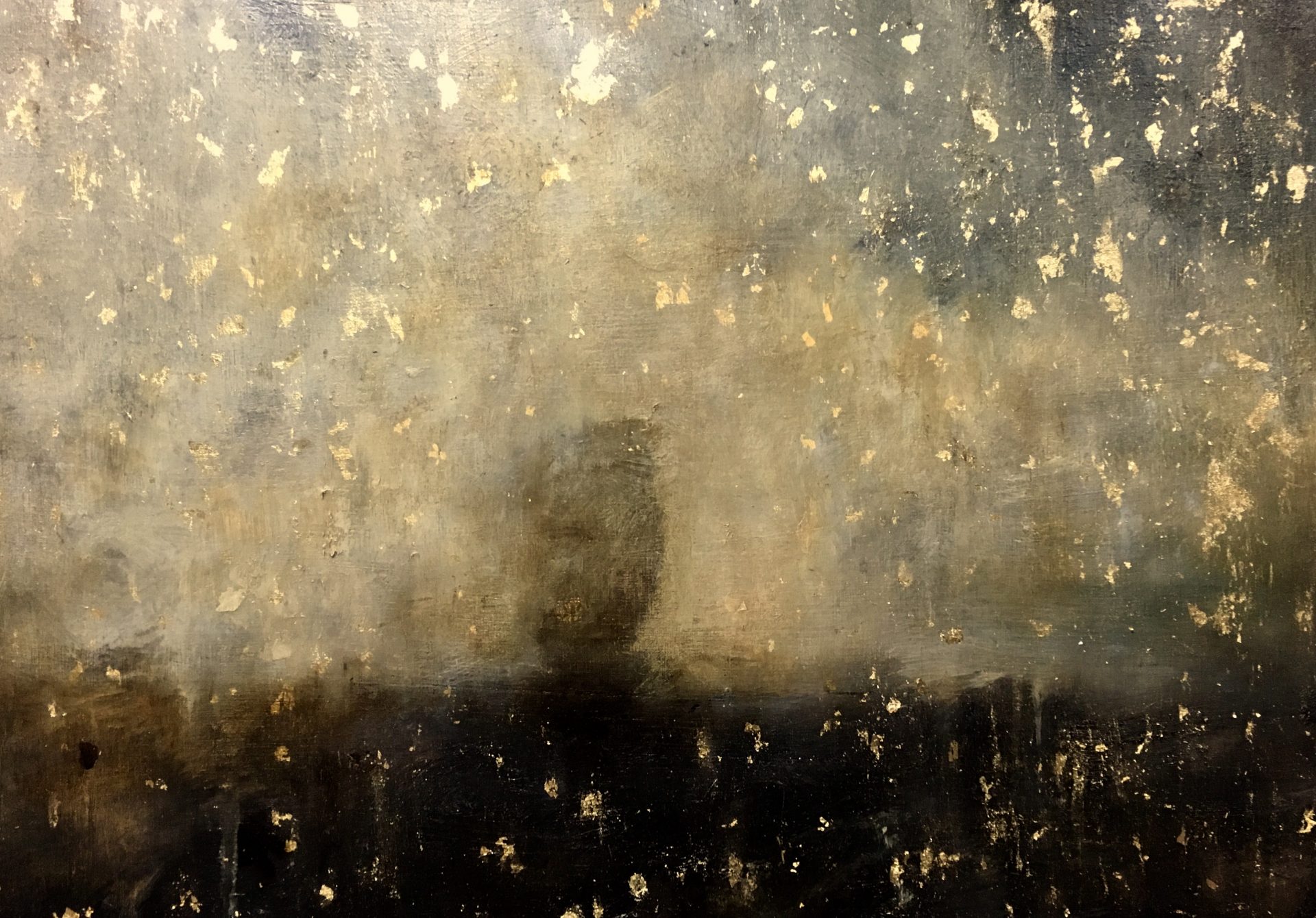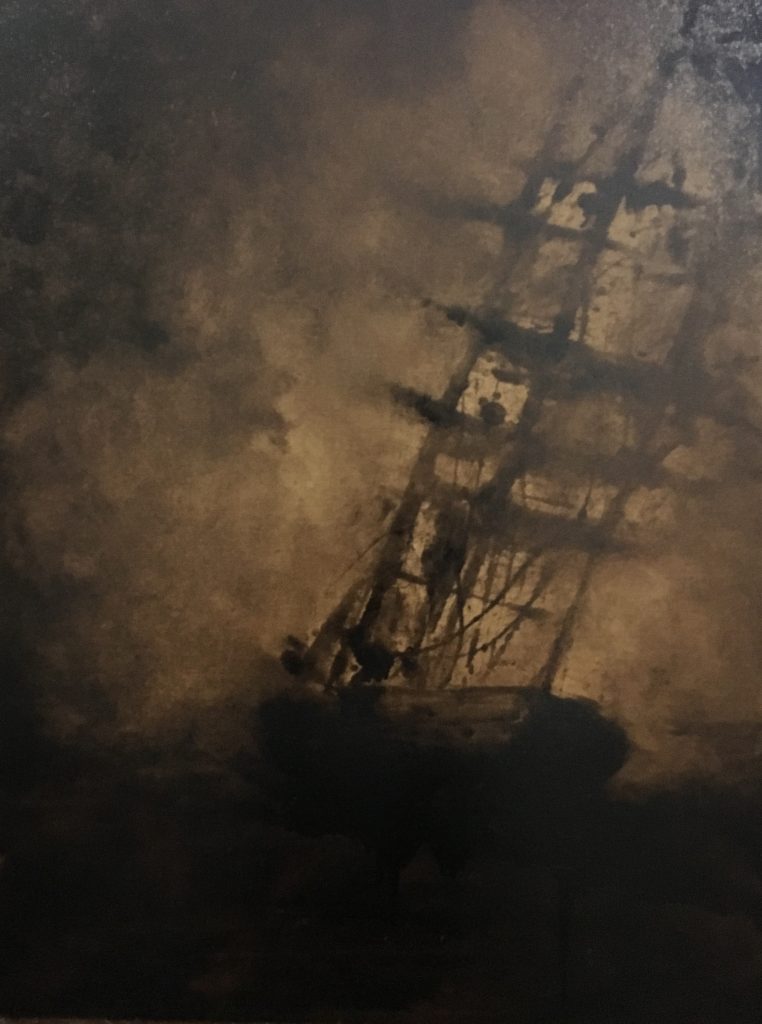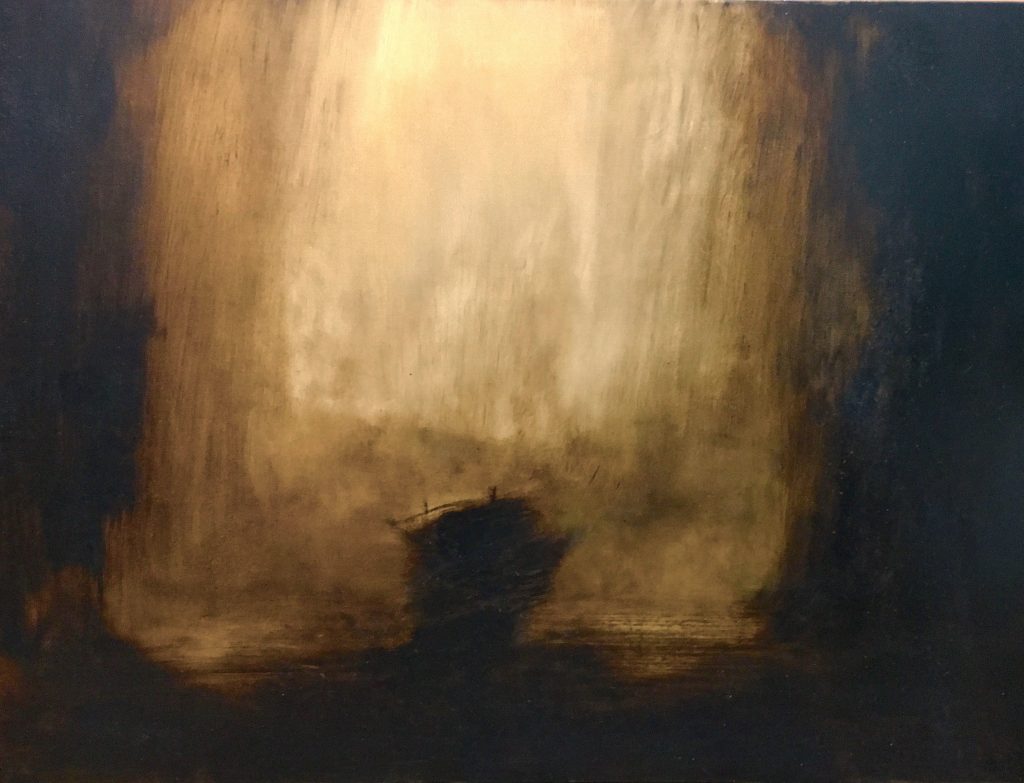Loomings: Christopher Volpe
Braitmayer Family Gallery
Opened: December 11, 2021
Closed: May 8, 2022
CAPTION: (above) Christopher Volpe, Westward, 2018. Tar, oil and gold leaf on wood, 16in x 24in.
Join distinguished artist Christopher Volpe, as he introduces Loomings: his series of his tar and gold leaf paintings named after the first chapter in Melville’s Moby-Dick.
Named after the first chapter of Moby-Dick, Loomings suggests disquieting parallels between our own oil-driven industrial age and Herman Melville’s apocalyptic vision of the American quest, as illustrated through the doomed commercial whaling voyage of the Pequod.
Although each work’s title quotes or alludes to Moby-Dick, Christopher Volpe’s paintings are not straightforward narratives or illustrations of events in the novel. Rather, they respond in kind to the book’s underlying critique of the problematic quest for knowledge, wholeness, and enlightenment in a world even more uncertain now than it was in Melville’s time.
Volpe renders his enigmatic marine imagery in tar, oil paint, and gold leaf. The primary medium, liquefied coal tar, is a byproduct of the refinement of petroleum, the successor to whale oil and an emblem of our own “age of extraction.” America’s global industrial dominance began with the Quaker whaling ships of Cape Cod and New Bedford. Whale oil literally fueled the industrial revolution and greased the machinery for the rise of what Melville in 1851 called “the all-grasping Western world.”
The discovery of petroleum in 1856 marked the beginning of the end for the American whaling industry. But after 170 additional years of oil-driven industrialization, humanity continues to exploit nature without adequately understanding our place within it or even our own history.
The tar, a fossil-fuel byproduct, functions as a monochromatic signifier of industrialism, particularly reckless over-extraction. Recalling that whale oil was the precursor to petroleum, the titles’ quotations from Moby-Dick, and the tar's metallic blacks and tintype sepia tones invoke Melville’s novel as a cautionary, foundational myth for our own age of accelerating climate disruption and social unrest. We’re still tempting Ahab’s unknowable gods and flouting signs and portents of extinction. And like the captive crew aboard the Pequod, we remain adrift in troubled, inscrutable seas.




